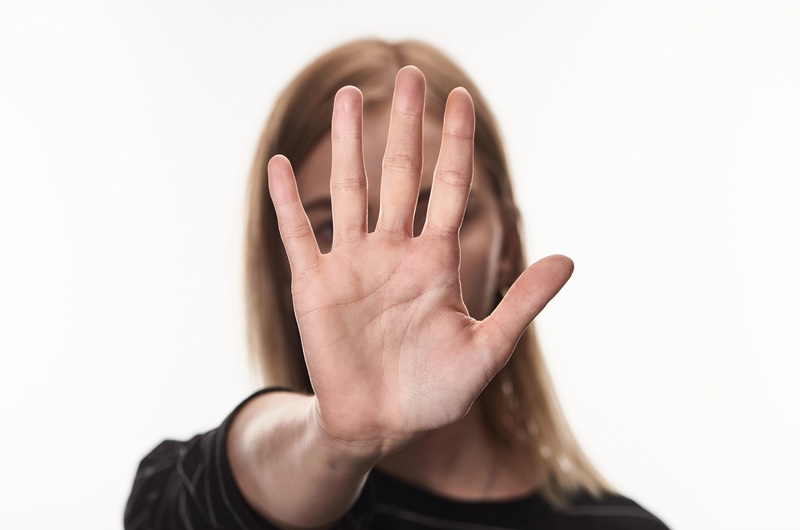How Does VAWA Affect The Abuser?
Domestic violence is a pervasive issue affecting countless individuals worldwide, disproportionately victimizing women. In response to this urgent problem, the United States enacted the Violence Against Women Act (VAWA) to provide survivors with comprehensive legal protection and support.
In addition to focusing on victims, it is equally crucial to explore the effects of this issue on abusers. This article examines how it influences those who perpetrate violence against individuals.
Lastly, it delves into the legal consequences, rehabilitation measures, and impact on the abuser’s relationships and employment. The goal is to understand domestic violence’s complex dynamics and explore the potential for abusers to change their behavior.

Overview Of The Violence Against Women Act
The VAWA is a landmark piece of U.S. legislation addressing and combating violence against women. Enacted in 1994, it raises awareness, improves legal protections, and supports survivors of gender-based crimes.
History & Enactment Of VAWA
VAWA was enacted by President Clinton in September 1994, following years of advocacy by women’s rights activists and organizations. It was a significant step forward in recognizing and addressing the systemic violence women face in intimate relationships and society. Also, it has been reauthorized several times, most recently in 2019, to ensure its continued effectiveness and relevance.
Key Provisions & Objectives Of VAWA
VAWA encompasses various provisions designed to address violence against women comprehensively. This assistance includes the following.
Legal Protection
VAWA enhances legal protections for survivors by strengthening the criminal justice response to domestic violence and sexual assault. It provides funding for investigating and prosecuting these crimes. Additionally, it supports specialized training for law enforcement officials and encourages the implementation of protection orders.
Support Services
VAWA allocates funding to support programs and services for survivors of domestic violence, sexual assault, and stalking. This includes the budget for crisis hotlines, shelters, counseling, legal aid, and community-based organizations that support survivors.
Prevention & Education
VAWA emphasizes prevention through public awareness campaigns, education programs, and initiatives. These efforts aim to change societal attitudes toward violence against women. It promotes initiatives that address the root causes of abuse, including gender inequality and harmful cultural norms.
Scope & Applicability Of VAWA
VAWA’s protections and provisions apply to all individuals, regardless of gender or sexual orientation. It focuses on people who have experienced violence by an intimate partner or family member.
The law recognizes that both men and women can be victims of family violence and that gender-based violence affects individuals from diverse backgrounds. Moreover, it has significantly impacted addressing violence against women in the United States.
It has contributed to improved legal protections, increased resources for survivors, and enhanced awareness about the issue. However, it is essential to continuously evaluate VAWA to address emerging challenges and ensure its effectiveness in combating violence against women.
Legal Consequences For Abusers
VAWA also imposes significant legal consequences on individuals who perpetrate violence against women. It aims to hold abusers accountable for their actions and ensure the safety and well-being of survivors. This section examines the various legal repercussions that abusers may face.
Criminal Penalties
Under VAWA, domestic violence carries significant criminal penalties, including imprisonment, fines, mandatory counseling, and probation. The severity of the offense and prior criminal history influence the penalties imposed.
The purpose is to hold perpetrators accountable, provide justice to survivors, and act as a deterrent. It ensures that abusers cannot evade punishment by crossing jurisdictional boundaries.
However, enforcement and penalties may vary by jurisdiction. The practical application of these sanctions is crucial to protect survivors and send a strong message against domestic violence.
Enhanced Sentencing
VAWA includes enhanced sentencing provisions to address the severity of domestic violence offenses and promote stricter punishment for certain circumstances. These provisions aim to ensure that repeat offenders and individuals who commit acts of violence involving firearms face more severe consequences.
Under the Violence Against Women Act, courts can impose longer prison sentences, higher fines, and more stringent probation or parole conditions for those convicted of abuse. These enhanced penalties serve as a deterrent, discouraging potential abusers from engaging in violent behavior and providing additional protection for survivors.
Mandatory Arrest Policies
VAWA encourages compulsory arrest policies in cases of domestic violence. It requires law enforcement officers to make an arrest when they believe that an act of domestic abuse has occurred. These policies help protect survivors by removing immediate threats and holding abusers accountable.
Protection Orders & Their Implications
VAWA supports the issuance of protection orders or restraining orders. This safeguards survivors and prohibits abusers from contacting or approaching them.
Violating a protection order is a severe offense and can lead to further legal consequences, including additional criminal charges and penalties. Specific legal implications and penalties for abusers can vary depending on federal, state, and tribal laws and the circumstances of each case.
Additionally, these legal measures’ enforcement and effectiveness may vary across jurisdictions. By imposing legal consequences, VAWA creates a legal framework that holds abusers accountable and promotes the safety and well-being of survivors.
Impact On Abusers’ Relationships & Employment
Implementing the VAWA can significantly affect abusers’ relationships and employment. These consequences serve as additional deterrents to discourage abusive behavior and promote accountability.
Effect On Relationships
VAWA supports issuing protection orders, which may restrict abusers from contacting or approaching their victims. Violating these orders can result in legal consequences, including criminal charges and penalties. This can strain relationships further and potentially lead to the dissolution of partnerships or marriages.
The legal effects and societal stigma associated with domestic violence can affect the dynamics within abusive relationships. Some abusers may face increased scrutiny, loss of trust, or diminished support from friends, family, and community members.
Impact On Employment
 Employers often conduct background checks to ensure a safe and secure workplace. A history of domestic violence or related convictions can be a red flag during such screenings, potentially affecting an abuser’s job prospects.
Employers often conduct background checks to ensure a safe and secure workplace. A history of domestic violence or related convictions can be a red flag during such screenings, potentially affecting an abuser’s job prospects.
Certain professions, such as those working with vulnerable populations or holding positions of trust, may have specific regulations or licensing requirements. A conviction related to domestic violence can lead to limitations or disqualification from such employment opportunities.
If an abuser’s behavior spills into the workplace, it can result in disciplinary actions, termination, or strained relationships with colleagues. Employers are responsible for maintaining a safe work environment; abusive behavior can disrupt that atmosphere.
Effect Of VAWA On Abusers Of Immigrants
Immigrant survivors of abuse often grapple with the harrowing dilemma of needing legal status while fearing repercussions from their abusers. The VAWA self-petition offers some respite for survivors who have been victims of violence by a spouse, child, or parent who is a U.S. citizen or lawful permanent resident. However, achieving a more permanent solution like a Green Card can provide lasting stability and peace of mind.
Steps To Obtaining A Green Card Without The Abuser’s Knowledge
Obtaining a Green Card, which allows you to live and work permanently in the United States, can be an important step toward a brighter future. But what if you’re in an abusive situation and fear your abuser’s reaction? There’s a way to do it discreetly. Know the steps to get a Green Card without your abuser knowing, ensuring your safety and independence.
Seek Support
Before you start the process, reach out to law firms or immigration lawyers competent in helping survivors of abuse. They can provide guidance, legal advice, and emotional support. Remember, you don’t have to go through this alone.
Gather Your Documents
You’ll need important documents to prove your eligibility for a Green Card. These might include your passport, birth certificate, marriage certificate (if applicable), evidence of abuse, and other necessary paperwork. Make sure to keep these documents in a safe and secure place.
File Form I-360
You need to submit this form to begin a petition without your abuser’s knowledge. Form I-360 is used for survivors of abuse. You can find it on the official U.S. Citizenship and Immigration Services (USCIS) website. Fill it out carefully and provide all the required information.
Provide Evidence
To strengthen your case, you must provide evidence of the abuse you’ve suffered. This could include police reports, medical records, affidavits from witnesses, and other relevant documentation. The more substantial evidence you have, the better your chances of success.
USCIS Review
Once you’ve submitted your Form I-360 and evidence, USCIS will review your case. They may issue a prima facie determination, which means they received your VAWA application and found your evidence credible. This determination can help you access certain benefits while your application is being processed.
Apply For A Green Card
If USCIS approves your Form I-360, you can apply for a Green Card (lawful permanent residency). Depending on your situation, you might adjust your status if you’re already in the U.S. or go through consular processing if you’re outside the country.
Keep Your Information Confidential
Throughout the process, make sure to keep your personal information and application details confidential. If needed, update your address to a safe location, and inform any relevant parties that your abuser shouldn’t have access to your information.
VAWA is crucial in addressing and combating domestic violence in the United States. This comprehensive legislation provides legal protection, support services, and prevention measures for survivors of gender-based crimes. While much attention has been focused on survivors, it is vital to consider its effects on the abusers.
Also, it influences those who perpetrate violence against women and imposes significant legal consequences on them. These include criminal penalties, enhanced sentencing provisions, mandatory arrest policies, and protection orders.
Contact A U.S. Immigration Attorney Today!
Categories
How To Find Us
What Our Clients Say
“This Lawfirm is great, very professional and helpful. I love that they are always in communication and always available for when you have questions . 100% recommended by me and my family. Thank you Lincoln-Goldfinch Law – Abogados de Inmigración”





